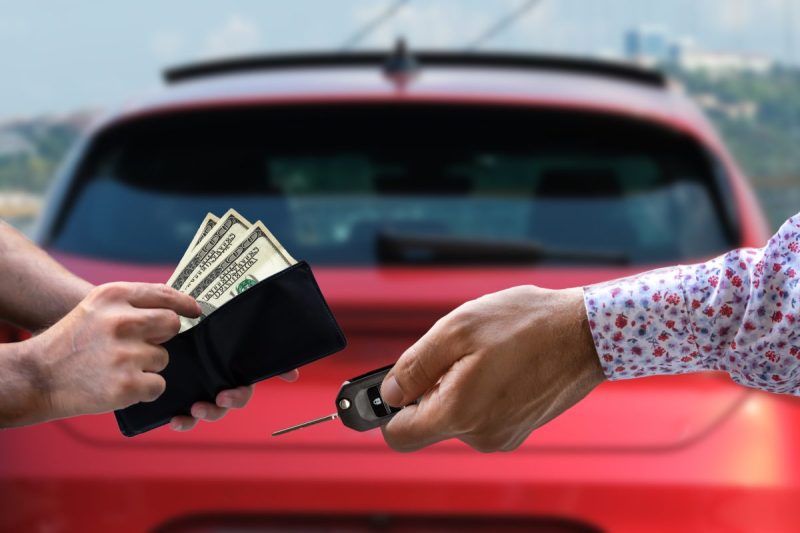The alarming practice of VIN cloning poses significant risks to car buyers. Thieves replicate legitimate Vehicle Identification Numbers (VINs), which are 17-digit codes unique to each vehicle, and attach them to stolen or salvaged cars. This illicit activity allows these vehicles to bypass regulations, appearing legitimate in title offices and online marketplaces. Under the National Motor Vehicle Title Information System Act, VIN cloning is classified as a felony, carrying penalties of up to 15 years in prison and substantial fines.
The implications of VIN cloning extend beyond legal consequences. Consumers face a direct threat to their safety and financial security. Cloned vehicles may have hidden histories, such as being totaled in accidents or floods. Buyers often only discover the fraud after experiencing problems, such as denied insurance claims or police seizures. Additionally, the original vehicle owner can be drawn into legal troubles, facing higher insurance costs as violations accumulate against their stolen VIN.
Detecting VIN Cloning: Key Strategies for Buyers
To protect themselves, potential car buyers should adopt thorough inspection techniques. Begin with a hands-on examination of the VIN displayed on the windshield, ensuring it matches secondary stamps found on the driver-side doorjamb, engine block, and transmission case. Professional inspectors use specialized tools like bore-scopes and paint-thickness gauges to identify signs of tampering, including swapped rivets or ground-down welds.
Conducting a history report is essential. Utilize services like Carfax and AutoCheck, along with iSeeCars VIN History Reports, which are based on NMVTIS data. Cross-referencing the VIN in the free NICB VINCheck tool can reveal discrepancies, while confirming that the vehicle’s specifications align with the buyer’s observations.
Legal Risks and Documentation Verification
Buyers unknowingly purchasing cloned vehicles face severe legal ramifications. When authorities identify a duplicate VIN, they may seize the vehicle immediately, leaving the buyer with no recourse for refunds or compensation. The financial loss can be compounded by towing and storage fees, and potential civil suits from legitimate title owners or insurers.
To mitigate risks, buyers should demand comprehensive documentation. This includes the original paper title, with a clear chain of ownership leading to the current seller’s name. Verification of VINs on every page of registration and service records is crucial. Notarized bills of sale and lien-release letters should also be requested, particularly for dealer sales. Sellers who rush transactions or withhold documentation should raise red flags.
Preventive Measures and Industry Initiatives
The National Motor Vehicle Title Information System (NMVTIS) plays a vital role in preventing VIN cloning. It serves as a centralized database for title data across all 50 states. When vehicles are branded as salvage or stolen, these records become accessible nationwide, making it more challenging for cloned VINs to evade detection. However, the system relies heavily on timely reporting, which some jurisdictions have not yet mastered.
The automotive industry has several opportunities to implement preventive measures. Manufacturers can enhance VIN plates with security features, such as holograms or micro-printing, to deter counterfeiting. Technologies like embedded RFID chips or blockchain-based digital titles offer permanent solutions to confirm vehicle identities without relying solely on metal tags.
The Complexity of VIN Cloning and Related Crimes
VIN cloning often intersects with other criminal activities, making it a larger issue within the realm of organized crime. Cloned vehicles can serve as untraceable assets for drug trafficking, human smuggling, and money laundering. This interconnectedness complicates law enforcement investigations, which may involve federal and international agencies.
The emergence of online platforms and advanced printing technologies has made it easier for criminals to clone VINs and sell vehicles without detection. However, advancements in technology also provide consumers with tools to verify VINs and protect themselves. High-resolution smartphone cameras enable quick verification of VINs, while blockchain verification apps enhance the authenticity of vehicle histories.
Consumers who suspect they own a cloned vehicle should stop driving it immediately and report the incident to local law enforcement. Documenting all expenses related to the purchase is crucial for potential recovery efforts. Engaging legal counsel with experience in auto fraud cases can help navigate the complexities of the situation.
As the automotive landscape evolves, both consumers and industry stakeholders must remain vigilant against the growing threat of VIN cloning. Awareness and proactive measures can significantly reduce the risks associated with this fraudulent practice, ensuring safer transactions in the used car market.
